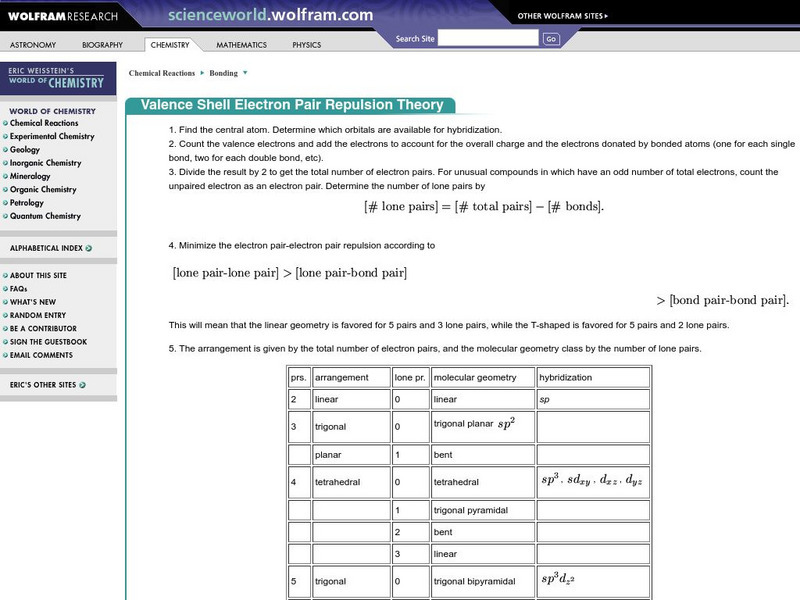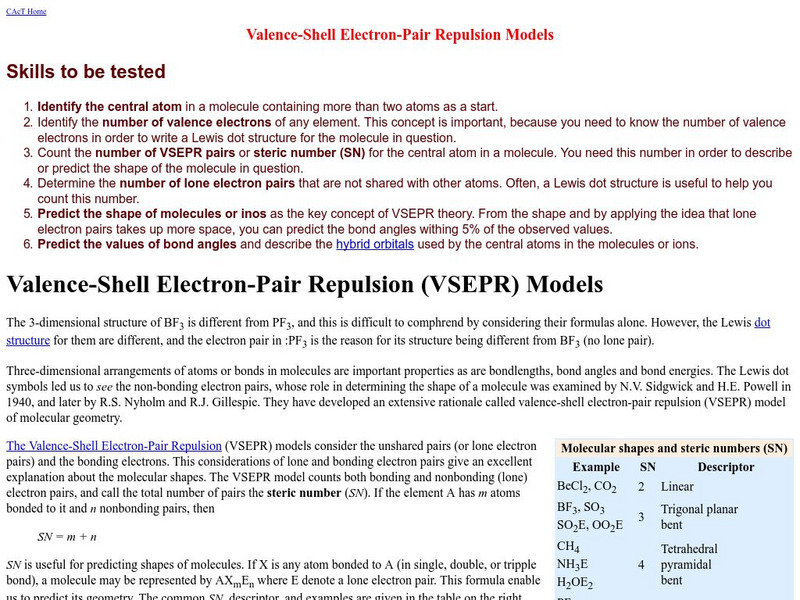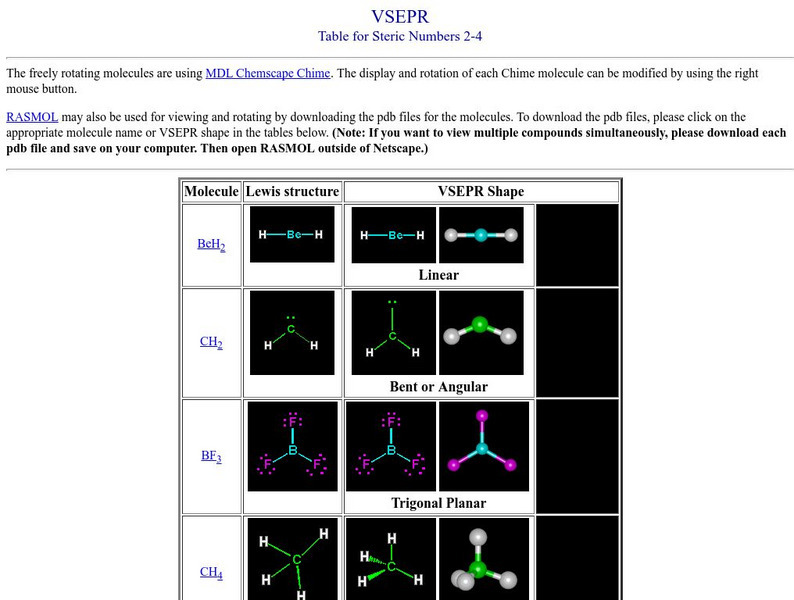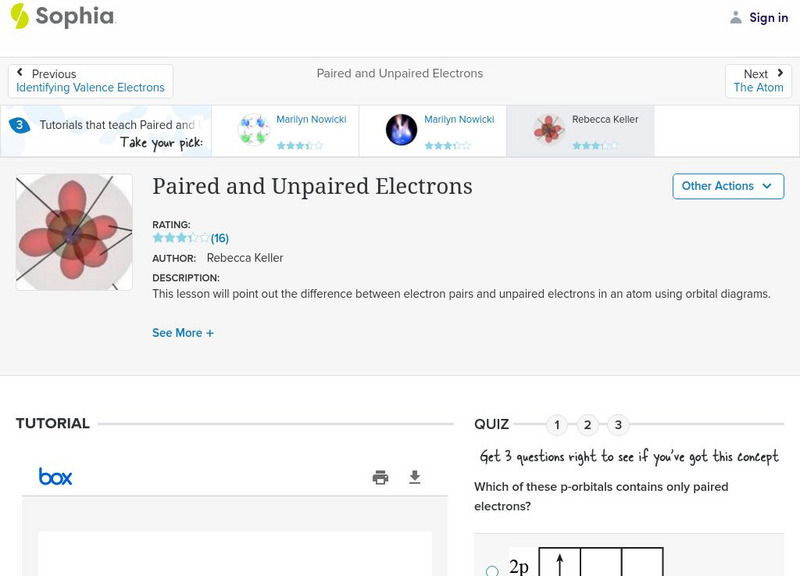Other
Chemistry Is Easy!: How Do You Write Electron Configurations?
With the goal of making chemistry understandable, this site guides the learner through electron configurations with layman's terms, colorful illustrations, and questions to check learning along the way. The "Purney Cheer" is also...
Wolfram Research
Wolfram Science World: Valence Shell Electron Pair Repulsion
Good site includes the basics of arrangement, hybridization, and gemetry.
Simon Fraser University
Chem1 Virtual Textbook: Protons and Electron Pairs
Acting as an overview from the General Chemistry Virtual Textbook, this site explores Lewis acids and bases with specific attention directed toward protons and electron-pairs. Other topics covered include proton-transfer reactions...
State University of New York
State University of New York: Mo Diagrams of Homonuclear Diatomic Species
The following module allows students to practice diagrams of of homonuclear diatomic species.
University of Waterloo (Canada)
University of Waterloo: Vsepr Models
The University of Waterloo provides background in pair repulsion and confidence building questions. Try this one once you think you know what you are doing!
Other
Washinton University: Vsepr
This site from the Department of Chemistry at Washington University is a nice site in that it gives you a graphical look at the arrangement of electron pairs. The plug-in CHIME will let you see the 3-D molecules, but it is good even if...
State University of New York
State University of New York: Determining Electron Pair Geometry
The electron-pair geometry of a molecule or ion depends on the number of structurally significant electron pairs in the central atom. Here students are asked to count the number of lone electron pairs and bonded atoms on the central...
Sophia Learning
Sophia: Paired and Unpaired Electrons: Lesson 2
This lesson will point out the difference between electron pairs and unpaired electrons in an atom using orbital diagrams. It is 2 of 3 in the series titled "Paired and Unpaired Electrons."









